-
Auckland Transport: Turn the WIFI back on!During covid lockdowns Auckland Transport turned off the WIFI service which was available at all train stations in Tāmaki Makaurau Auckland, and have not yet resumed this essential service. Public transport passengers are constantly referred to the Auckland Transport website to check the schedule changes or plan our journeys, but many of us cannot afford internet data to check the website. As Auckland Transport relies almost solely on their website to inform journey planning, it only makes sense to give the public access to this website by providing WIFI at the train stations. WIFI is an essential service to transfer money so we can pay to top-up our Hop cards, and for passengers' personal safety. It is a service which would make Tāmaki Makaurau Auckland a livable city for public transport users. We know Auckland Transport can provide public and free WIFI, it's only right that they do!17 of 100 Signatures
-
Save Oranga Tamariki’s Te Tiriti commitments (7AA)We all want the laws and practices guiding how we as a country look after children in care to have their best interests at heart. We know feeling connected to their culture and history is essential to children's wellbeing. Section 7AA is the only section of the Oranga Tamariki Act that ensures our tamariki Māori have their best interests protected through state care processes. It allows an ongoing partnership between the Crown and Māori to remedy shortfalls experienced by tamariki and their familial ties through state care processes. The repeal of this section will impact the way Oranga Tamariki interact with our children, straining their whakapapa ties with little to no regard as to the implications. Minister for Children Karen Chhour plans to introduce a bill to take 7AA out of the Oranga Tamariki Act to Parliament in mid-May.[1] Section 7AA is the primary legal mechanism for recognising the Crown's Te Tiriti o Waitangi duties in our child protection system, ensuring: 1) The policies and practices of Oranga Tamariki have the objective of reducing socio-economic and historic disparities by setting measurable standards and outcomes for Māori 2) That the polices, practices and services of Oranga Tamariki have regard to mana Tamati, whakapapa and whanaungatanga 3) Partnerships with hapu, iwi and Māori-led organisations are ongoing and strong to protect our Tamariki 4) Accountability is practised by reporting publicly and annually what the Ministry has done, and the impact of those actions with clear next steps. The recent report from the Waitangi Tribunal sheds light on the deeper implications of such a repeal, emphasising the profound impact it would have on the lives of our tamariki and their whānau.[2] Now is the time for action, for us to come together and defend the rights of our children. Indigenous voices and perspectives must be central to any changes made to legislation affecting their well-being. The absence of meaningful consultation with Māori about the repealing of these sections is deeply concerning and represents a failure to uphold the principles of partnership and participation enshrined in Te Tiriti o Waitangi.[3] Without adequate safeguards and holistic considerations, changes to the Oranga Tamariki Act could inadvertently harm vulnerable children and families, particularly those already disproportionately affected by systemic inequities and socio-economic challenges. By signing this petition, you are standing up for the rights of our tamariki and sending a clear message that their well-being and cultural identity must be protected at all costs. Together, let's ensure that Section 7AA remains intact. Join us in this crucial fight by signing the petition today and spreading the word to your friends, family, and community. Together, we can make a difference and safeguard the future of our children. References [1] https://www.parliament.nz/en/pb/hansard-debates/rhr/combined/HansDeb_20230726_20230726_44 [2] https://www.waitangitribunal.govt.nz/news/tribunal-releases-report-on-oranga-tamariki-section-7aa-urgent-inquiry/ [3]https://www.nzherald.co.nz/nz/government-warned-against-repealing-oranga-tamarikis-treaty-commitments/KXJFQ4PU35CSNIBMQE2O7Q6OJI/ https://www.teaonews.co.nz/2024/04/23/not-a-good-look-legal-expert-on-minister-karen-chhours-oranga-tamariki-act-change/ https://www.rnz.co.nz/news/political/514638/crown-lawyers-attempt-to-block-waitangi-tribunal-summons-to-minister-for-children https://www.nzherald.co.nz/kahu/state-abuse-survivor-urges-against-repealing-oranga-tamariki-treaty-commitments/TG4N2SOFBRDXXMXRYAVKDPCMMA/ https://waateanews.com/2024/04/23/tupua-urlich-dedicated-maori-advocate/1,432 of 2,000 Signatures
-
Say NO to Youth Offender Boot CampsIt's the responsibility of people in government to make informed, thoughtful decisions that have long-term benefits for the future of the country. They should use the best knowledge, information and expertise available to guide their decisions to ensure all people and communities thrive, especially our young people. By proposing to bring back the youth offender boot camps, this Government is not following the best expertise or knowledge. Youth offender boot camps are proven to be ineffective. When they were trialled in 2008, reoffending rates were 85-87% within two years [2]. Despite the evidence that they do not work, this Government is proposing to bring them back. Youth offender boot camps for young people have been proven locally, and internationally to be unsuccessful in preventing young people from reoffending due to their failure to respond to the long term and complex reasons why young people become involved with the justice system in the first place. Youth offender boot camps punish children who have been failed by an unequal society. They disproportionately impact Māori youth and children who have experiences of homelessness, violence, poverty, mental health issues, or disabilities. Aotearoa’s youth offender boot camps of 2008 were shockingly unsuccessful, with reoffending rates of 85-87% within two years [2]. Children and young people need care and community connection. Removing children from their homes and communities, and punishing them without addressing the root causes of harm – such as disadvantage, challenging circumstances, economic need, and social disconnection – will only cause more harm. Youth boot camps isolate young people from the resources and social connections they need to heal and be supported. Instead of solving problems caused by a lack of resources and services in many communities, our criminal justice system has been designed to lock people away. This hurts all of us, but it especially hurts Māori. This is because systemic racism means that young Māori are more likely to be arrested and convicted for the same crime as non-Māori [3]. Youth offender boot camps will continue this injustice and cause further harm to communities already hurting from ongoing colonisation. The re-establishment of these boot camps will reinforce discriminatory attitudes, and misdirect resources away from solutions that address the root causes of harm. Instead, we can call on our decision makers to make sure young people and children are safe and cared for, by providing stable housing, high quality education, adequate incomes, food, and essential health, mental health and disability services. The punitive approach of youth offender boot camps will not help young people, and will not address harm in our communities. This is why we are calling on the Government to say NO to Youth offender boot camps and say YES to addressing issues of poverty, homelessness, racism, and the mental health crisis. If you agree with us please sign this petition and share it with your family and friends! References and extra reading [1] RNZ. (2024). Boot camps for young offenders are expensive and do not work, critics say. https://www.rnz.co.nz/news/national/510938/boot-camps-for-young-offenders-are-expensive-and-do-not-work-critics-say [2] 1News Reporters. (2024). Youth offender boot camps ``become really abusive” – lawyer. 1News. https://www.1news.co.nz/2024/03/06/youth-offender-boot-camps-become-really-abusive-lawyer/ [3] Rangatahi Māori and Youth Justice Oranga Rangatahi https://iwichairs.maori.nz/assets/PDF/RESEARCH-Rangatahi-Maori-and-Youth-Justice-Oranga-Rangatahi.pdf 95bFM Radio Get Action! Say NO to Youth Offender Boot Camps w Clara Donne: 5 June, 20241,554 of 2,000 SignaturesCreated by The Criminological Society of the University of Otago.

-
Protect Women: Make Stalking IllegalMaking stalking a crime will help to protect our basic human right to live safely and free of fear in Aotearoa NZ. We need to do this now to prevent more severe distress and physical harm from stalking, including murders committed by stalkers. • Stalking is terrifying and common, and it can be deadly. Making stalking a crime would enable coordinated, systematic responses so victims get prompt, consistent, and effective protection which is not currently provided [1]. • Stalking is illegal overseas, but not explicitly in NZ, making it very difficult and often impossible for victims/survivors to get the protection they need. • Prior to the election, now-Minister Paul Goldsmith criticised the previous government for dragging its feet in this area, but he now indicates criminalising stalking is not a priority. • Police methods to determine stalking risks are inadequate and not fit-for-purpose, as identified by the Independent Police Complaints Authority in 2024, after the death of Farzana Yaqubi on 19 December 2022 [2]. Farzana's stalking complaint was still “awaiting investigation” when she was murdered by her stalker almost 8 weeks after she first contacted Auckland police. If stalking had been explicitly illegal, police would likely have had the correct tools to keep Farzana safe immediately. Stalking is a pattern of unwanted repetitive and persistent intrusions into a person’s life. • Physically following someone is only one kind of stalking. Common repeated stalking actions include: digital stalking; showing up uninvited; driving past a home or workplace; confrontation; messaging repeatedly; posting on social media; delivering gifts; using spyware to get private information; making threats; contacting people close to the victim; and sabotaging the victim’s freedom and prospects. • To be considered stalking, these actions must be part of a pattern of repeated unwanted intrusions into someone’s life. • Stalking is common. In the USA, 1 in 6 women, and 1 in 17 men experience stalking in their lifetimes. NZ does not yet collect stalking data but harassment and threats, which are consistent with stalking, are two of the five most common crime experiences (2021 NZ Crime and Victims Survey). • Young women, recently separated women, and those experiencing intimate partner violence are most commonly affected by stalking. Wāhine Māori, disabled women, rainbow women and trans people, and migrant and refugee women are disproportionately impacted. • Those targeted for stalking include politicians, journalists, and celebrities, which can dissuade women from public roles or from speaking out. This silencing of women has a strong negative impact on both gender equity and our democracy. Stalking usually takes a heavy toll on victims’ emotional, mental, and physical well-being and is often far more dangerous than it looks from the outside. • It is usually designed to control the victim through intimidation which is why it is so terrifying. • Stalking can, and does, lead to physical violence, even death. • As one victim put it: “I always thought at the beginning that if I could just ride it out then he would stop. But that never happened and it got worse and worse. It was very, very scary. It was extremely isolating […]there was never a time that I could escape it, ever.”[3] NZ’s current laws: out-of-date • Various stalking-related behaviours are prohibited across a patchwork of fragmented, piecemeal, and poorly understood statutes, which fail to capture stalking's underlying harmful pattern. • The lack of a stalking law prevents coordinated responses and prevents victims of stalking from getting prompt, consistent, and effective protection. • Overseas, standard practice is to criminalise stalking, including in the US, Australia, England, Wales and the European Union. • We recognise every part of our justice system has a fundamentally racist track record: arresting, prosecuting, convicting, and incarcerating Māori at vastly higher rates than non-Māori. Over-incarceration of Māori continues to be used as a tool of on-going colonisation. We support Māori-led innovation through devolved resourcing and decision-making to address these issues, and we support sentencing that emphasises rehabilitation and keeps people safe. As well as criminalising stalking, the government needs to resource the prevention of stalking: • Police training to recognise stalking and its harms, and take action to stop stalkers immediately • Anti-stalking intervention programmes • Public awareness campaigns about stalking and its harms • Training for social and community workers re prevention and victim protection • Comprehensive data collection on stalking prevalence Women's safety needs higher prioritisation - politicians keep stringing us along. • In August 2020 Justice Minister Andrew Little agreed a review of the law was needed. • In 2021, the next Justice Minister Kris Faafoi committed to addressing the lack of legal redress for intimate partner stalking. However, nothing was done. • In 2023, we worked to educate the political parties that action on stalking is urgent. Prior to the election, the National Party publicly supported the inclusion of stalking as a crime within the Crimes Act 1961.[4] New Zealanders need the National-led Government to act now to prevent more innocent people from living in fear and being harmed or murdered. A note from the ActionStation team: https://bit.ly/3woVhAW References: [1] For more info on the policy background of this petition see: https://awc.org.nz/stalking/ [2] https://www.ipca.govt.nz/Site/publications-and-media/2024-media-releases/2024-apr-18-investigation-response-farzana-yaqubi-online-report-.aspx [3] https://womensrefuge.org.nz/intimate-partner-stalking/ [4] https://www.nzherald.co.nz/nz/election-2023-four-political-parties-pledge-to-strengthen-legal-protections-against-stalking/FQF3HDBPRBBFRLXQGJZODDRFVM/22,041 of 25,000 SignaturesCreated by Coalition for the Safety of Women and Children and AVA Anti-Violence Action
-
Stand with early childhood teachers to save pay parityTeachers, parents, whānau and communities fought for two decades to win respect, recognition and pay parity for teachers in early childhood education. After finally achieving progress with pay parity, the National, ACT and NZ First coalition Government are initiating radical changes in early childhood education. They have signalled funding changes that threaten the pay of tens of thousands of teachers and risk children’s wellbeing by rolling back safety regulations. Removing protections to teacher pay and safety regulations are not new ideas. They are failed ideas that enable unscrupulous employers to cut corners. Ultimately, it is tamariki and staff who suffer when providers have a license to put profit before providing great care and education. We know that for tamariki to have the best start in life they need great foundations and the best possible beginning to their lifelong journey. Every child, no matter where they live or how much their parents earn, should have access to quality early childhood education, Māori medium, and Pacific language services that suit their needs and community, which place culture and identity at the heart. Kōhanga Reo, Puna Reo and early childhood teachers are trained and qualified to make sure our youngest children get the best teaching and learning – just like teachers in kindergartens and schools. Regardless of where our kaiako work, if they work to grow our tamariki and mokopuna they should have their mahi valued equally. Respect our youngest mokopuna in education, their kaiako, and their whānau. Don’t let Minister Seymour attack teacher conditions – the learning conditions for our mokopuna. Take us forwards, not backwards!11,626 of 15,000 SignaturesCreated by NZEI Te Riu Roa
-
Protect Te Aka Whai OraOur health system has failed Māori for far too long. Report after report has demonstrated institutional racism and exclusion of Māori leadership that has led to devastating outcomes and inequity. For all those years, hapū, iwi, health workers, lawyers, health researchers, and many more have fought for better, and called for practical solutions they knew would work. Te Aka Whai Ora (the Māori Health Authority) is the result of their vision for a health system that better honours Te Tiriti o Waitangi, and better cares for whānau. A truly Māori-led agency that has the power to resource and lift up kaupapa Māori, and iwi and hapū health services, can improve health for Māori, and all communities in Aotearoa. Without a clear plan to improve hauora Māori, the National, ACT, and NZ First parties have vowed to disestablish Te Aka Whai Ora. The coalition Government plan to introduce the disestablishment legislation just days before the hearing of the Urgent Waitangi Tribunal claim is set to begin. This bad-faith move restricts the jurisdiction of the Tribunal to fully consider this breach of Te Tiriti, and the impact on Māori. It is unacceptable for the Crown to unilaterally move ahead and block tangata whenua from being heard. We demand a health system that treats everyone fairly, in ways that uplift them and their whānau, and honours Te Tiriti o Waitangi. We stand with people on the frontline of the health system: allied, public, and mental health practitioners, nurses, doctors, and many more health professionals, who know Te Aka Whai Ora is important and necessary to deliver healthcare well. Disestablishment is a major threat to Māori health. That’s why we’re calling for the Government to change course now and protect Te Aka Whai Ora. https://www.youtube.com/watch?v=ZUTDpxDh90E19,580 of 20,000 SignaturesCreated by Stop Institutional Racism NZ

-
The Right to WalkDunedin city centre should prioritise walking as a carefree right and allow retailers to thrive off a steady flow of safe, comfortable, and eager customers. The current renovations on George Street have made progress towards this ideal, but they have been undermined by the decision to permit car travel between the pedestrian zones. Cars will only cause congestion and damage to the tiled road surface, resulting in great harm both for retailers, who have endured a pandemic on top of everything else, and pedestrians. Given that the city has survived without direct vehicle transit through George Street for many months now, it is self evident that cars are not needed within the city centre. We call on the Dunedin City Council to change its approach and fully pedestrianise the renovated George Street once it is reopened. In doing so, pedestrians can safely enjoy their town and retailers may enjoy a steady flow of foot traffic to support their small businesses. Let’s keep the charm of our inner city by making it car free, sign the petition if you agree!50 of 100 SignaturesCreated by Luke Mitchell
-
Support for all people with dementiaBringing people living with dementia together to work, share food, use their long learned skills and remind them that they are valued members of our society, helps keep people well for longer. It improves their quality of life and enriches our communities. But currently, the Ministry of Health only provides the financial support needed to attend daycare services to the full time carer of someone who is terminally ill, someone who has ongoing health or mental conditions or someone who has an age related disability. The carers needs are assessed based on their situation and the disability/illness of those they are caring for. They are then allocated a number of days per year to allow them respite from those they are caring for, or they can get financial support to bring the person who is ill to a daycare facility. People who live on their own or their carers are still in employment do not qualify for this support. Often resulting in people being unable to afford daycare programs that would greatly benefit their quality of life. Ensuring funding for people living with dementia, regardless of whether they have a carer or not, means enabling people to attend services where they can be part of a community while in a safe environment. Dementia can hit everyone, is not picky about age, or intelligence. When it hits a person who is young and therefore still working, it can take a while before it is recognised/diagnosed. Because of this, often people are lonely, having lost their job, their income and their working community. More and more people are living alone because of the loss of partners, and have no carers around. All people living with dementia deserve to be cared for and given opportunities to be part of a community.148 of 200 SignaturesCreated by Marian Weststrate
-
Put our People over Profit - Stop the Repeal of the Smokefree LegislationMāori Leadership in 2010 led the march to protect Māori and all population groups of Aotearoa against the negative harm of tobacco on whānau. A Smokefree Aotearoa goal by 2025 was set with a target of having less than 5% of all populations smoking. This new coalition government of National, ACT and NZ First will go down in history in the wrong way, allowing Big Tobacco lobbyists to inform a roll back of world leading public health action. Our communities have spoken, loud and clear, since the 2010 Health Select and Māori Affairs Select committee that this is what they want, the people of Aotearoa New Zealand will be failed once again, all in the name of a handful of tax cuts. Currently, 5,000 New Zealanders die from the harms of tobacco-related illnesses every year. If we repeal the Smokefree Act, loved ones will die, all so tobacco companies can continue to profit. In 2022 we introduced world-leading legislation to support the goal for Aotearoa to be smokefree by 2025. The need is clearly demonstrated, that Māori, Pacific and low socio-economic neighbourhoods are saturated with tobacco sale points, and have the highest smoking rates. We simply cannot afford to go backwards, while our whānau continue to die at the hands of this product. The government of 2023 will walk away with the literal blood of its constituents on its hands.52,770 of 75,000 SignaturesCreated by Hāpai Te Hauora
-
Deny Kelly-Jay Keen-Minshull Re-Entry Into AotearoaThis request is rooted not only in the impact of her visit in March this year, but also her extensive history of hateful speech and incitement of violence. Her return to Aotearoa would pose a significant threat and risk to public order and the public interest - this holds especially true for our takatāpui, transgender and gender diverse communities. Disinformation Project Researcher Dr Sanjana Hattouwa reported that after Keen’s visit to New Zealand, the amount of vitriol towards the trans community was “to a degree we’ve never studied before ” with “extraordinarily violent” content towards trans people being distributed widely. He described the level of hate towards trans people as “genocidal”. Outside of Aotearoa, Keen-Minshull’s public statements and actions have included: - Threatening that transgender people, gender diverse people, “and anyone else who stands in [her] way” will be “annihilated” - Stating trans men should be sterilised - Calling for men to carry guns to patrol women’s bathrooms against the imagined threat of trans women - Encouraging violent outbreaks at her tours in the UK and US, with her supporters allegedly assaulting counter protestors and inflicting violence on trans people - Organising rallies attended by members of the Proud Boys - a designated terrorist group in Aotearoa - Being excluded by other groups and members of her own anti trans circles because of her racism, Islamophobia and aforementioned ties to far-right white nationalism.* As the Minister for Immigration, Mr. Little, you have the right under s.16 of the immigration act 2009 to deny a visa, entry permission or entry waiver to a person likely to be a threat or risk to public order or to the public interest. The threshold for both appears to be low, considering that it was the same section used to bar the rap group Odd Future from Aotearoa in 2014. At the time, Immigration New Zealand said in a statement that their rationale for the ban under s.16 included "incidents at past performances in which they have cited violence." In an email dated 12 February 2014, obtained by Stuff as part of the OIA, Immigration NZ wrote: "[Odd Future] clearly has a history of promoting and inciting hatred…were they permitted to travel to New Zealand and perform I believe on the basis of their track record thus far, they are likely to incite violence towards women, racial, sexist and homophobic disharmony in New Zealand". Keen-Minshull is a person who causes demonstrable risk of harm to our public. Who employs hate speech and calls for violence against some of Aotearoa’s most vulnerable citizens. Whose public events have already caused disruption to public order here and overseas. TLA believes this justifies you, Minster Little, in exercising your powers under s.16 of the Act to deny her entry to Aotearoa, and for the safety of our trans citizens and the general public interest, we call on you to do so. Yours sincerely, Trans Liberation Alliance Sources: Posie Parker to return to NZ in September: Will Border Officers Let Her In? New Zealand Herald, 2 August 2023 https://www.nzherald.co.nz/nz/posie-parker-to-return-to-new-zealand-in-september-will-border-officers-let-her-in/QMFZ42LTVNFD7DS5KAF5C6URFQ/ Green Party Aotearoa Veale J, Byrne J, Tan K, Guy S, Yee A, Nopera T & Bentham R (2019). Counting Ourselves: The health and wellbeing of trans and non-binary people in Aotearoa New Zealand. Transgender Health Research Lab, University of Waikato: Hamilton NZ. https://researchcommons.waikato.ac.nz/bitstream/handle/10289/12942/Counting%20Ourselves_Report%20Dec%2019-Online.pdf?sequence=54%26isAllowed=y Anti Trans Hate in NZ becoming 'genocidal’ - One News, Friday, 5 May 2023 https://www.1news.co.nz/2023/05/05/anti-trans-hate-in-nz-becoming-genocidal-disinformation-project/ Why we need to protest Posie Parker, Redflag, 5 March 2023 https://redflag.org.au/article/why-we-need-protest-posie-parker4,013 of 5,000 SignaturesCreated by Trans Liberation Alliance

-
Keep this election free from violent speechElections are a time when our entire country comes together to decide on our political leadership. Everyone has a right to participate and share their view on the direction of our country, no matter their background. However, we are deeply concerned with your recent comments on NewstalkZB which incite violent rhetoric towards Pacific communities. You told listeners that in your fantasy you’d "send a guy called Guy Fawkes in there [The Ministry for Pacific Peoples] and it would be all over.” Threats of violence are not a “joke”. They can normalise violent behaviour and lead to fatal real-life repercussions. In fact, staff at the Ministry for Pacific Peoples had already been harassed at their workplace due to politicisation and race-baiting already aimed at their work. In 2022 you stated yourself, that violent rhetoric “does not belong in New Zealand politics”. Now we’re asking you to practice what you preach, retract your statement on NewstalkZB, apologise to the Ministry for Pacific Peoples and commit to an election free from violent speech. Elections should be a time when everyone can participate democratically, without their culture or workplace being threatened or insulted. Violent speech chips away at our democracy, when we need it to be stronger than ever. In a time of shared economic and climate crises, we need political leaders that are willing to respect people of all backgrounds, and refuse to stoke the fire of fear and division in Aotearoa New Zealand. ----- [1] Deputy PM Sepuloni blasts Seymour's Guy Fawkes 'joke' about Ministry for Pacific Peoples. Newshub, 17 August 2023: https://www.newshub.co.nz/home/politics/2023/08/deputy-pm-sepuloni-blasts-seymour-s-guy-fawkes-joke-about-ministry-for-pacific-peoples.html [2] Incident at Ministry of Pacific Peoples leaves staff rattled, police called in. Stuff, 18 August 2023 https://www.stuff.co.nz/national/politics/300952879/incident-at-ministry-of-pacific-peoples-leaves-staff-rattled-police-called-in [3] ACT Leader David Seymour slams Te Pāti Māori for 'threatening violence' in jokes about him. Newshub, 14 July 2022: https://www.newshub.co.nz/home/politics/2022/07/act-leader-david-seymour-slams-te-p-ti-m-ori-for-threatening-violence-in-jokes-about-him.html4,322 of 5,000 SignaturesCreated by Team ActionStation

-
Keep Nga Hau Māngere Birthing Centre openWhere a gap once existed, this state of the art centre has served many whānau, aiga & families. Over 860 babies have been born there. Thousands of women have experienced vital support via labour cares, antenatal clinics, lactation consultant appointments, contraception and birth education/hapū wānanga. 75% of women birthing at Nga Hau Māngere identify as Māori and/or Pasifika. Research has shown that in the first 2000 days Māori and/or Pasifika have preventable, inequitable experiences. Pregnant Māori and/or Pasifika have the highest death rates and are less likely to receive specialist care. Nga Hau Māngere is an already 'up–and–running' solution aligning with new health reforms under Te Whatu Ora's Te Pae Tata (2022). "Kahu Taurima | Maternity and early years" is 1 of the 5 priority actions this government plan (under priority action 1 ‘place whānau at the heart of the system to improve equity and outcomes’). The local community have spoken of how important the centre is: "Māmā in South Auckland deserve the best care while they are pregnant. Speaking from experience Nga Hau Birthing Centre was exactly that for me. They were amazing from the beginning until the end... I truly believe that if I had been with Nga Hau for my first pregnancy it would not have been so traumatic." "Our experience at Nga Hau truly set (us) up for success when we took our baby home. We were as rested as we could be and I was given all the help they had to offer to start our breastfeeding journey... I’ve always had such a sense of calm and a strong feeling of safety when walking through those doors. Mothers deserve to birth at Nga Hau and Mangere/South Auckland deserves to have this incredible facility in our backyard." "All in all a 10/10 experience for me... I pray to God that this place stays so that midwives are able to birth more of mine and other ladies' babies!" Nga Hau Māngere provides an essential service to the community and the Government needs to ensure funding is provided so it can remain open.9,218 of 10,000 SignaturesCreated by Rebecca Kingi

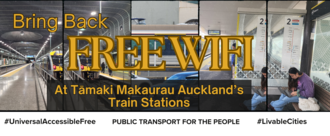
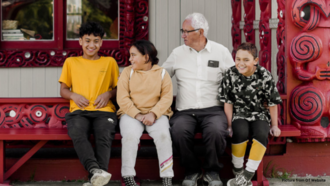

.jpg)


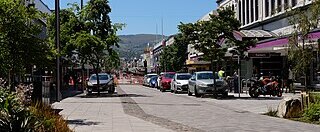
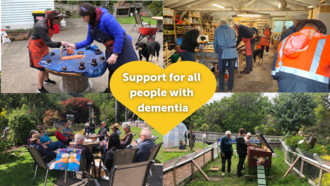.png)


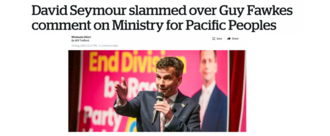.png)
